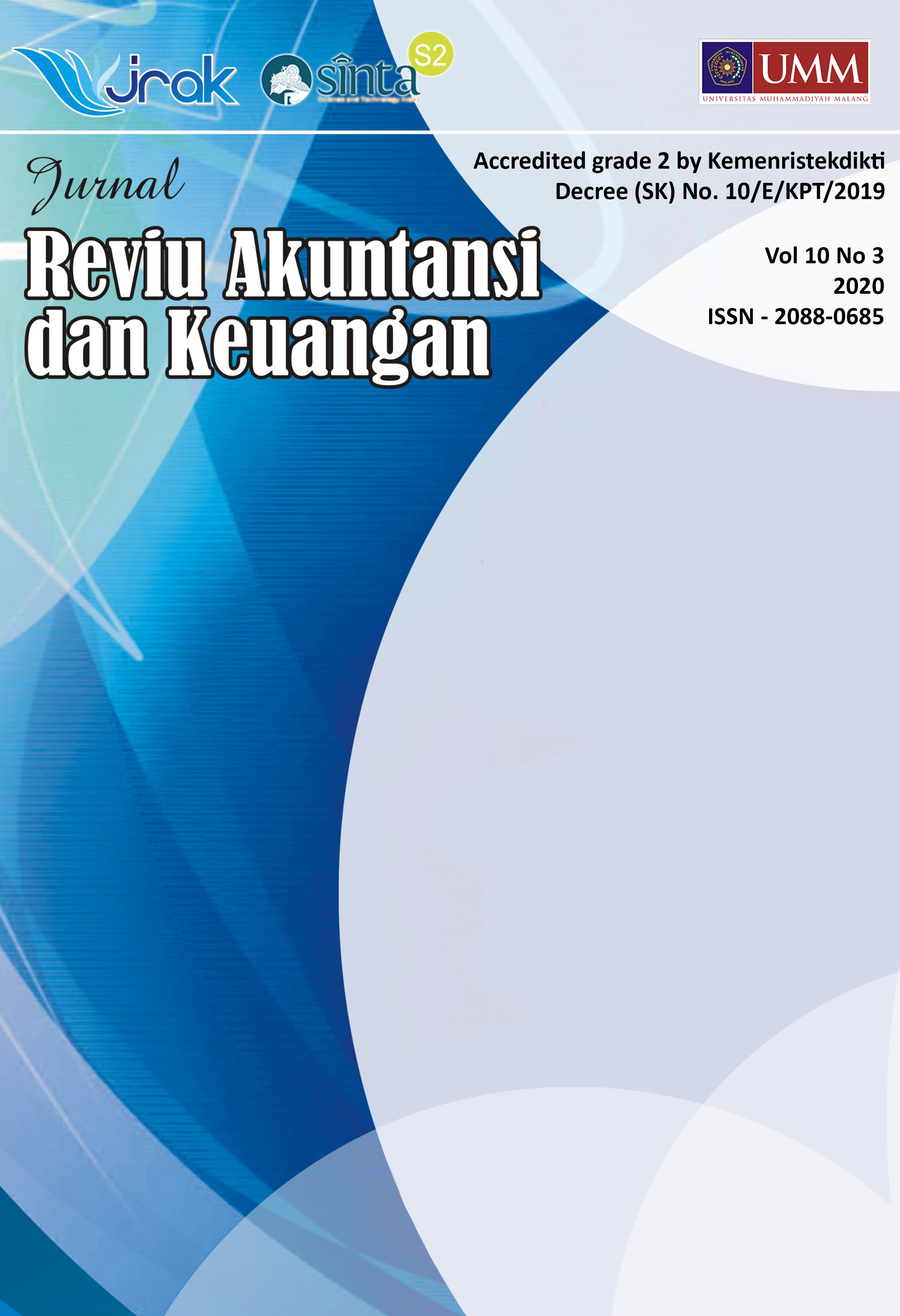Interpersonal Skill-based Audit Team Brainstorming: Solution for Fraud Detection
DOI:
https://doi.org/10.22219/jrak.v10i3.13017Keywords:
Audit Team Brainstorming, Fraud Detection, Interpersonal SkillAbstract
The auditor should ensure the freedom of financial statements from material misstatements due to error or fraud. Brainstorming refers to a group discussion that facilitates the auditor's communication in finding solutions to a problem or discussion related to a specific problem by generating ideas. Good Interpersonal Skills are used as a supporting basis for carrying out these procedures. This study explains how Brainstorming helps Fraud Detection and how auditors use interpersonal Skills as a basis for supporting Fraud Detection through Brainstorming. This study was conducted using a survey questionnaire distributed to 181 auditors working for accounting firms in DKI Jakarta using a purposive sampling method. A structural equation model using Lisrel 8.80 program was used to analyze the data. The results showed that Interpersonal Skills had a significant positive effect on Fraud Detection through Audit Team Brainstorming. The results showed that Interpersonal Skills had a significant positive effect on Fraud Detection through Audit Team Brainstorming. This research is expected to provide information that auditors must have good Interpersonal Skills in supporting their careers and strengthening relationships with teammates. Even though there is an inherent risk, the implementation of the Audit Team Brainstorming strongly supports the Fraud Detection carried out by the auditor by conducting discussions related to the factors and forms of fraud and identifying appropriate audit procedures and methods for the audit process.
Downloads
Downloads
Published
Issue
Section
License

Jurnal Reviu Akuntansi dan Keuangan is licensed under a Creative Commons Attribution-NonCommercial-ShareAlike 4.0 International License.
Authors who publish with this journal agree to the following terms:
- Authors retain copyright and grant the journal right of first publication with the work simultaneously licensed under a Creative Commons Attribution-NonCommercial-ShareAlike 4.0 International License that allows others to share the work with an acknowledgement of the work's authorship and initial publication in this journal.
- Authors are able to enter into separate, additional contractual arrangements for the non-exclusive distribution of the journal's published version of the work (e.g., post it to an institutional repository or publish it in a book), with an acknowledgement of its initial publication in this journal.
- Authors are permitted and encouraged to post their work online (e.g., in institutional repositories or on their website) prior to and during the submission process, as it can lead to productive exchanges, as well as earlier and greater citation of published work (See The Effect of Open Access).










